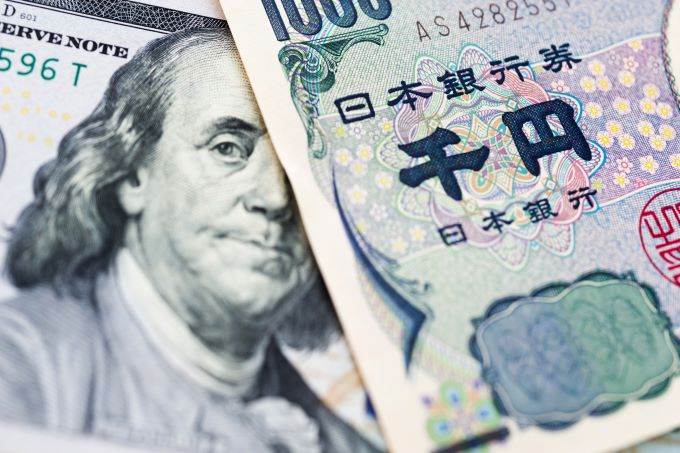So far this week, the Japanese Yen has advanced against the Greenback, adding 1.13 percent since the beginning of the week and posting gains for the second consecutive week.
 It seems that the Japanese Yen is taking advantage of the Dollar's weakness, which has lost ground against a bundle of its main competitors for the sixth consecutive week, dropping 0.94 percent so far this week. The shattering expectations for a V-shaped recovery now that the US lawmakers are now amid an attempt to reach an agreement on a new stimulus package and a loose monetary policy stance are behind the weakness of the greenback, pushing traders and investors toward safer assets like the Japanese Yen and Gold.
It seems that the Japanese Yen is taking advantage of the Dollar's weakness, which has lost ground against a bundle of its main competitors for the sixth consecutive week, dropping 0.94 percent so far this week. The shattering expectations for a V-shaped recovery now that the US lawmakers are now amid an attempt to reach an agreement on a new stimulus package and a loose monetary policy stance are behind the weakness of the greenback, pushing traders and investors toward safer assets like the Japanese Yen and Gold.
In terms of the economic calendar, this week the markets received remarkable information about the Japanese economy. On Sunday, the Bank of Japan released its summary of opinions, which provides the bank's policymakers’ insights regarding the state of the economy as well as their forecasts. The report claims that the economic recovery could be delayed further if the number of coronavirus infections keeps rising, adding that if the impact of the pandemic is prolonged this could result in job losses. The members of the committee also believe that the bank should deepen its study on how the monetary policy should be managed during this crisis.
At the moment, there are 30,961 confirmed COVID-19 cases in Japan, as well as a death toll of 998. On Tuesday, the Japanese authorities reported a single-day record increase of cases, as the number of infected individuals went up by 981. It is believed that the increase in cases is linked with the reopening of nightlife establishments. This has pushed the Japanese Minister, Yasutoshi Nishimura to suggest municipalities to adopt more stringent measures against those establishments.
The concern for a deflationary period, a problem that has heavily affected the Japanese economy since the 1990s, was also present in the report. Strengthening the bank's forward guidance was offered as an alternative meanwhile, leaving the doors open for further monetary action against deflation when there are signs of the pandemic being contained.
On Monday, the Ministry of Economy, Trade, and Industry released its All Industry Activity Index, which is often used to determine the current level of Japanese economic expansion. The figure stood at -3.5 percent in May, after being at -7.6 percent on the previous month. May's coincident index, released by the cabinet office, was at 73.4 in May, after being at 80.1 in April, and below the analysts' expectations who foresaw that the figure would stand at 74.6.
May's leading economic index, which signals the performance of the Japanese Economy, stood at 78.4, over the previous month's figure which was at 77.7, and behind the analysts' expectations, who foresaw that the index would be at 79.3. The Bank of Japan also released the Corporate Service Price Index, which signals inflationary pressures, was at 0.8 percent in June, after being at 0.5 percent in May, and in line with the analysts' expectations.
Today the Bank of Japan's Deputy Governor, Masayoshi Amamiya remarked that the economy is recovering, mainly thanks to the monetary and fiscal support that has been provided in the last month. However, he warned that the resurgence of the pandemic could hurt the Japanese banking system and push down the inflation levels, leaving them distant from the bank's 2 percent target.
The Deputy Governor also left the door open for further monetary stimulus, including deeper negative rates, highlighting that the bank must be mindful regarding their potential side-effects.
"We won't rule out the chance of taking rates deeper into minus territory," he commented.
